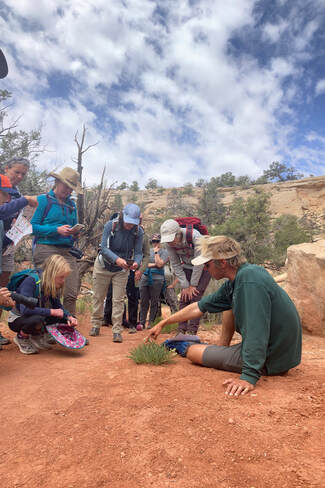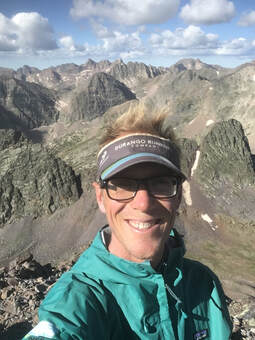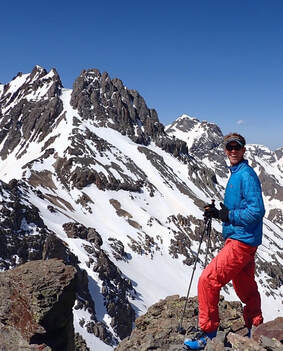Welcome to 9th Grade Biology!
I am so excited to embark on a journey studying life with you all! This course will examine living systems, from local and global ecosystems to the microscopic world of cells and molecules. More importantly, we will learn to use the skills, attitudes, and mindsets of scientists to deepen our connection to the natural world and to solve problems surrounding our own health, and that of our human and ecological communities.
|
Can Nature Teach us to Live Sustainably?
(Fall 2023) Essential Questions:
|
Current and future generations will no longer have the luxury of looking away from issues of global environmental sustainability, instead the consequences will live increasingly at the forefront of our consciousness. However, we need look no further than nature itself to learn of possible solutions to mitigate the problems we face, and to adapt with grace to those environmental changes that are already in motion. The natural world is a vast web of interdependent of systems that are resilient, efficient, adaptable, and self-sustaining--why not look to it for cues for how to live in a way that ensures the well-being of future generations?
This semester, we will explore sustainable systems in biology with an eye toward engineering our own solutions to environmental issues. Topics will include the capture and transfer of energy in ecosystems through photosynthesis and respiration, the cycling of matter and nutrients between the atmosphere, organisms, water, and soil, the interactions among populations that support and maintain biodiversity, the evolutionary processes that have led to the current assemblage of life forms on earth, and the factors that enable life to adapt in a context of change. Finally, we will use our expertise in these topics to engineer a solution to a real-world sustainability problem, using the natural world as inspiration. |
Can Biology Help us Cure Cancer? (Winter/Spring 2024)
|
Essential Questions:
|
Right around winter break in 2021, I got a call from my dad, and sensed before I even answered that there was more gravity to it than a typical check-in. He had been diagnosed with colon cancer. My stomach turned and I wondered with a mix of emotion and detachment how our lifelong connection would change in the coming months. Now, eight months later, after surgery and several rounds of chemotherapy, things are looking good and I am resting easy knowing that we've got a lot more life to share.
My dad's story connects my family to millions of others affected by cancer. While its impacts can be devastating on individuals and families, the treatments that saved my dad's life speak to the amazing power that science has to work in service of our health when applied properly. In this project, we will use cancer as a vessel through which to explore the role of science in serving our own health. There will be lots of content to learn if we are to answer this guiding question; we will need to model the structure and function of cells, nucleic acids, proteins, DNA replication, genetics and the cell cycle to understand how cancer works. We will also use all of the scientific skills to explore how cancer is identified and treated. This project will culminate in a mock oncology clinic where students must identify different types of cancer. |
About Me

I am thrilled to be joining the Animas High School community this year. I have long admired the culture and mission of the school, and I am grateful to be working in a project-based setting that values real-world experience and student voice. Though I am new to AHS, there's a good chance you've already seen me, either while bike commuting around town, or while at work in my previous job with Durango Nature Studies and the San Juan Mountains Association where I designed and ran nature-based field trips and summer camps for students from Kindergarten through high school (including AHS students, on a few occasions). My passion for teaching Biology stems from a lifelong love of nature that started when I was a young child poking around the coastal tide pools and lake shores of Maine and New Hampshire. Some amazing teachers in elementary school, high school, and especially during my four years as an Environmental Studies major at Colby College (Maine) deepened that love of nature by enriching my knowledge of it and empowering me to learn more through scientific inquiry. However, I have learned the most by sharing that love with others through teaching. Nowadays, I love to backcountry ski, mountain bike, scramble peaks, and run trails in the San Juan Mountains, but my happiest place is deep in the Weminuche Wilderness, with my backpack, setting up camp at a remote alpine lake to look for water bugs, birds, bats and animal homes, admire the wildflowers, sunrises and sunsets sunsets, and gaze at the stars and moon deep into the night.


